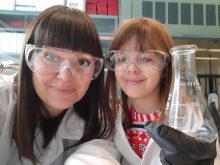Researchers from the University of Saskatchewan have helped identify a genetic abnormality linked to Parkinson’s disease.
Dr. Ali Rajput, a Parkinson’s expert at the university, was part of an international team that discovered the link between a mutated version of the DNAJC13 gene and most forms of the degenerative brain disease.
Rajput called the discovery a major step that could lead to early detection and the development of new drugs that prevent or delay the disease’s progression.
“It opens up the door much wider than we’ve ever had,” said Rajput, who has been studying Parkinson’s for 45 years.
Read Also

Vintage power on display at Saskatchewan tractor pull
At the Ag in Motion farm show held earlier this year near Langham, Sask., a vintage tractor pull event drew pretty significant crowds of show goers, who were mostly farmers.
“Right now, we detect the disease when about 50 percent of the cells are dead … in an area of the brain called black substance or substantial nigra.
“We want to be able to detect it when one percent of the cells are dead or five percent or 10 percent. At that point, people are functioning normally so if we can detect it at that point, then we (can try to) … find drugs that will … delay progress.”
Discovery of the genetic link began years ago when Rajput identified Mennonite families that had unusually high incidence of Parkinson’s disease.
Rajput worked with the families, conducted post-mortem studies and determined that all affected family members were suffering from the same form of the disease.
He then teamed up with University of British Columbia geneticist Matthew Farrer, who identified a consistent genetic abnormality in the affected family members.
In one extended Mennonite family from Saskatchewan, 13 of 57 members family members were diagnosed with the disease. The unselfish commitment of the family is remarkable, said Rajput.
“They went out of their way on every conceivable manner to help solve this mystery.”
Added Farrer: “A breakthrough like this would not be possible without their involvement and support.”
Farrer’s team released its findings last month at the 16th International Congress of Parkinson’s Disease and Movement Disorders in Dublin, Ireland.
Rajput said researchers will now develop an animal model to learn more about the disease, its progression and potential treatments.
He is also seeking organ donors who are willing to donate healthy brains, which will serve as controls in related Parkinson’s research.

















